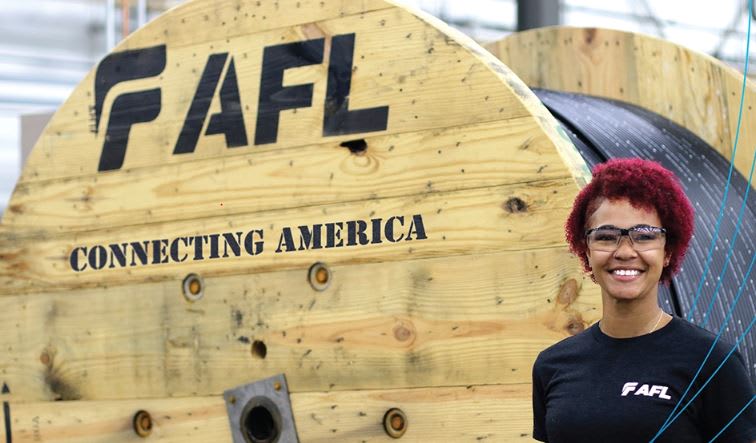BLOG
Part One: AFL’s Commitment to Supporting Broadband Expansion
Description: This blog explores AFL's dedication to supporting broadband expansion in underserved communities, as it relates to BABA and government funding programs, like BEAD.

At AFL, our dedication to supporting broadband expansion in underserved communities across America spans four decades. During this time, we have proudly manufactured fiber optic cable, components and conductor accessories in the United States, creating thousands of jobs across the nation. As part of AFL’s strategic efforts, prioritizing the advancement of broadband deployment and harnessing the potential of government funding programs are paramount among our objectives.

Click on the image above to learn more about AFL's commitment to Connecting America
In November of 2021, Congress passed the $1.2 trillion Infrastructure, Investment and Jobs Act focused on building out U.S. roads and bridges, transportation systems, broadband infrastructure and strengthening the electric grid. Two critical elements of the Act, which were formed to help bridge the Digital Divide and establish broadband as a necessity are the Build America, Buy America (BABA) Act and the Broadband Equity Access and Deployment program (BEAD).
BABA establishes a minimum domestic preference threshold for the manufacturing of any component which attaches to or is part of the infrastructure. It is the most notable set of rules for products (such as those manufactured by AFL and our parent company, Fujikura) used in government-funding programs. These rules require or heavily encourage the use of U.S.-manufactured items and apply to a wide range of U.S. government spending, not just broadband. However, they don’t apply to all broadband programs and within some programs, only certain types of funding recipients need to follow BABA.
BEAD is the single largest investment for broadband infrastructure ever passed by the federal government. It’s a $42.5 billion funding program targeted to close the digital divide and provide universal broadband coverage to all Americans by the year 2030. All 50 States and U.S. territories received funding – from Texas, which received over $3.3 billion, to the U.S. Virgin Islands, which received $27 million.
Understanding the intricacies of these regulations is vital, as there are provisions for exceptions. Each U.S. government program has the authority to issue a waiver to the BABA rules, especially when certain materials are harder to obtain. It's important to note that each waiver is specific to a single U.S. government program. For example, the BEAD waiver is tailored specifically for the BEAD program. This waiver clarifies the application of the BABA rules to the BEAD program and waives some BABA requirements based on availability concerns collected by the National Telecommunications and Information Administration through market feedback. In part two of this blog series, we'll explore these waivers in more detail.
We are proud to offer a wide array of fiber optic cable and connectivity products that meet domestic preference requirements for federally funded projects. BEAD, among other government funding programs, and BABA support these efforts by providing substantial financial resources and reinforcing domestic manufacturing preferences, propelling the nation toward a more connected future.
In this three-part blog series, we will guide you through the complexities of these initiatives, empowering you to lead the charge towards a more connected world. Read part two to learn more about navigating the landscape of government funding programs for broadband.
For further guidance on complying with BABA requirements, visit our Connecting America webpage or reach out to us at ConnectingAmerica@aflglobal.com.